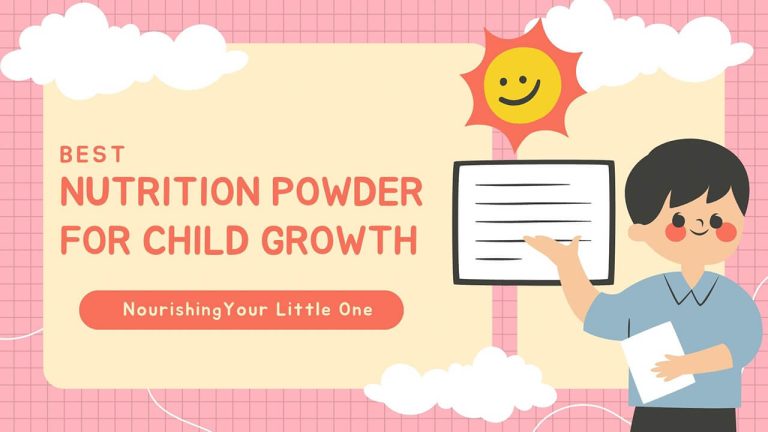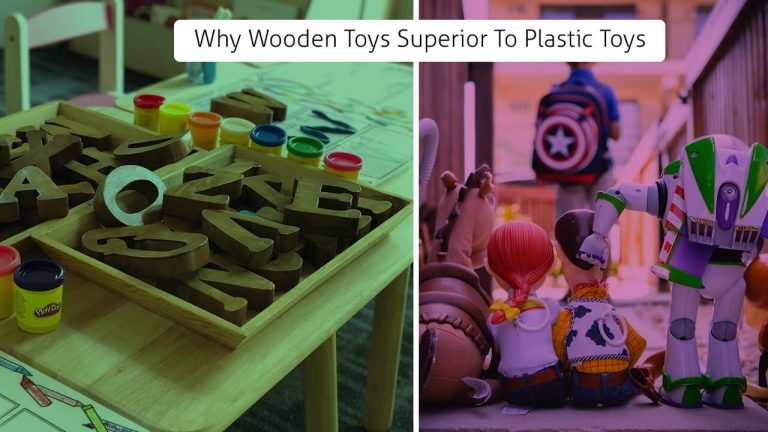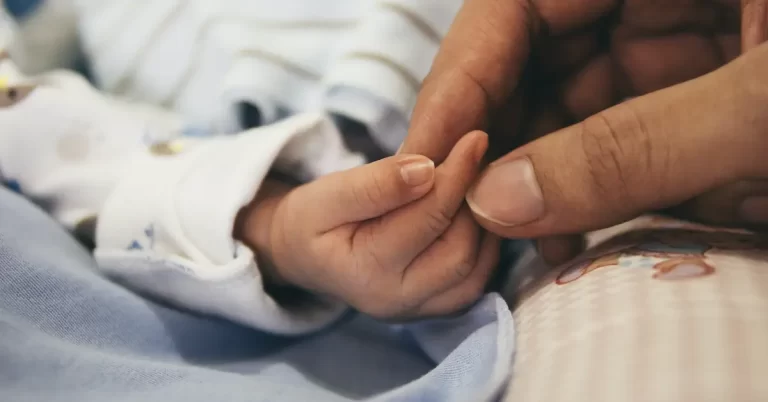Table of Contents
- Introduction
- The Timeless Appeal of Wooden Toys for Kids
- The Vital Role of Fun and Play in Child Development
- Discovering the Educational Power of Wooden Toys for Kids
- How Wooden Toys for Kids Spark and Promote Imaginative Play
- Exploring the Eco-Friendly Nature
- Choosing the Perfect Wooden Toys for Kids
- 15 Best Wooden Toys for Kids.
- Embracing the Timeless Joy of Wooden Toys for Kids
- People Also Ask:
Introduction
wooden toys for kids have been captivating children’s hearts and minds for generations. With their timeless appeal and inherent charm, they offer a perfect blend of fun and learning. Unlike their plastic counterparts, wooden toys possess a tactile quality that engages children’s senses and encourages active play. From building blocks to puzzles, these toys foster creativity, problem-solving skills, and fine motor development. In this article, we will explore the enchanting world of wooden toys for kids.
Wooden toys capture children’s imagination and provide a hands-on experience that sparks their curiosity. They are designed to stimulate cognitive development while keeping children entertained. By engaging in open-ended play with wooden toys, children learn to think critically, explore possibilities, and develop their problem-solving abilities. Whether it’s stacking blocks or fitting puzzle pieces together. These toys encourage children to experiment, make connections, and learn through trial and error.
Moreover, wooden toys for kids promote imaginative play, an essential component of a child’s development. As children immerse themselves in pretend scenarios, they enhance their language skills, emotional intelligence, and social interactions. Wooden toys provide a blank canvas for imaginative minds to create stories, act out roles, and develop narratives. From dollhouses to play kitchens, these toys inspire endless creativity and help children build their own worlds.
What sets wooden toys apart is their eco-friendly nature. In a world increasingly concerned about sustainability, choosing wooden toys for kids is a conscious decision. These toys are crafted from natural materials, often sourced from responsibly managed forests. Unlike plastic toys, which contribute to pollution and landfill waste, wooden toys are biodegradable and have a minimal environmental impact.
In conclusion, wooden toys for kids offer a delightful combination of fun and learning. They stimulate children’s imaginations, foster cognitive development, and promote eco-consciousness.
The Timeless Appeal of Wooden Toys for Kids
Wooden toys have an enduring appeal that captivates both children and parents alike. Their simplicity, durability, and tactile nature make them a popular choice for playtime. When it comes to engaging young minds, wooden toys offer a world of possibilities. Let’s explore the unique qualities that make wooden toys so appealing and why they stand out from plastic or electronic alternatives.
Firstly, wooden toys exude a natural charm that resonates with children. it’s the weight of a wooden block or the satisfying sound of wooden puzzle pieces clicking together, these toys engage multiple senses, enhancing the overall play experience.
Moreover, wooden toys possess a timeless quality that transcends trends and passing fads. They are built to last, withstanding the test of time and even generations of play. Their longevity contributes to a more sustainable playtime option, reducing waste and promoting a sense of value and appreciation.
Additionally, wooden toys encourage children to explore their imagination and creativity. Unlike electronic toys that dictate specific actions or have limited functions, wooden toys allow children to take the lead in their play. Whether it’s constructing unique structures with building blocks or creating imaginary worlds with wooden figurines. These toys offer a canvas for boundless play possibilities.
Furthermore, wooden toys often evoke a sense of nostalgia and simplicity, harking back to a time before screens and technology dominated playtime. They provide a welcome respite from the digital world and promote a hands-on, offline experience. Wooden toys invite children to actively engage with their environment, developing essential fine motor skills, hand-eye coordination, and spatial awareness.
explicitly, the appeal of wooden toys for kids lies in their tactile nature, timeless quality, open-ended play opportunities, and ability to evoke a sense of nostalgia.
The Vital Role of Fun and Play in Child Development
Playtime is not just about entertainment; it plays a crucial role in a child’s development. When it comes to choosing toys for kids, wooden toys stand out as a perfect choice to promote both fun and learning. Let’s explore the benefits of incorporating fun and play into a child’s developmental journey and how wooden toys facilitate this process.
Cognitive Development:
Engaging in play with wooden toys stimulates a child’s cognitive abilities. As they manipulate and interact with these toys, they develop problem-solving skills, critical thinking, and spatial awareness. Wooden toys encourage children to think creatively, explore cause-and-effect relationships, and enhance their cognitive abilities.
Social and Emotional Development:
Additionally, Wooden toys facilitate cooperative play, encouraging children to interact, negotiate, and share with others. Whether it’s playing a pretend tea party or collaborating on a wooden train track, children develop empathy, communication skills, and the ability to work in a team. Wooden toys provide a platform for children to navigate social dynamics, express emotions, and develop meaningful connections with others.
Physical Development:
Wooden toys promote physical development by engaging children in hands-on, active play. From stacking blocks to pushing toy vehicles, these toys improve fine motor skills, hand-eye coordination, and dexterity. The manipulation of wooden toys requires precise movements and helps develop the muscles in their hands and fingers, setting the foundation for future writing and drawing skills.
Imagination and Creativity:
Wooden toys ignite children’s imaginations and foster creative thinking. Without predetermined functions or limitations, children are free to invent their own stories, scenarios, and role-play adventures with wooden toys. From building a wooden fort to creating a pretend farm, these toys provide a blank canvas for children to express their ideas, develop narratives, and explore their limitless imagination.
Basically, fun and play are not just recreational activities but integral components of a child’s overall development. Wooden toys for kids offer the perfect blend of enjoyment and learning, facilitating cognitive, social, emotional, and physical growth. By incorporating these toys into playtime, parents can support their child’s developmental journey and nurture essential skills that will benefit them throughout their lives.
Discovering the Educational Power of Wooden Toys for Kids
Generally, wooden toys have long been recognized as valuable tools for children’s learning and development. Above all, these toys offer a wealth of educational benefits that make them an ideal choice for parents seeking enriching play experiences. Let’s delve into how wooden toys foster various aspects of learning and support children’s growth.
Enhancing Creativity and Imagination:
Wooden toys provide an open-ended play experience, stimulating children’s creativity and imagination. Whether it’s building structures with blocks or creating stories with wooden figurines, these toys encourage children to think outside the box, explore new possibilities, and express their unique ideas. Wooden toys serve as catalysts for imaginative play, allowing children to create narratives, develop characters, and engage in pretend scenarios, fostering their creativity and storytelling skills.
Developing Cognitive Skills:
Basically, wooden toys engage children in cognitive tasks that promote problem-solving, critical thinking, and logical reasoning. From shape-sorting puzzles to memory games, these toys challenge children to analyze, make connections, and find solutions. Manipulating wooden toys also enhances fine motor skills, hand-eye coordination, and spatial awareness. Through play with wooden toys, children develop their cognitive abilities while having fun, setting the foundation for academic success.
Encouraging Social Interaction:
Whether it’s playing together with a wooden train set or engaging in collaborative building projects, these toys provide opportunities for children to share, take turns, negotiate, and communicate. Through joint play, children develop important social skills such as empathy, teamwork, and effective communication, laying the groundwork for healthy relationships and positive social interactions.
Promoting Early Learning Concepts:
Wooden toys can be valuable tools for introducing and reinforcing early learning concepts. From alphabet and number puzzles to shape recognition toys, these educational wooden toys support children’s early literacy and numeracy development. By engaging with wooden toys, children familiarize themselves with letters, numbers, shapes, and colors in a hands-on and interactive way, strengthening their foundational knowledge.
Therefore, learning through wooden toys is a dynamic and enjoyable process that nurtures children’s creativity, cognitive skills, social development, and early learning concepts. These toys provide a tangible and tactile experience that engages multiple senses, making learning engaging and memorable. By incorporating wooden toys into playtime, parents can actively promote their child’s growth and create an environment that fosters a love for learning.
How Wooden Toys for Kids Spark and Promote Imaginative Play
Imaginative play is a fundamental aspect of a child’s development, and wooden toys serve as invaluable tools in nurturing this creative process. As a matter of fact, wooden toys encourage children to explore their imagination, dive into make-believe worlds, and embark on exciting adventures. Let’s delve into how wooden toys promote and enhance imaginative play, fostering the growth of young minds.
Open-Ended Possibilities:
As a matter of fact, Wooden toys provide endless possibilities for imaginative play. From wooden blocks that can be stacked into towering structures to wooden figurines that can become characters in imaginative narratives, these toys invite children to bring their ideas to life. In fact, without predefined functions or limitations, wooden toys empower children to take the lead, experiment, and explore their creativity, allowing their imagination to soar.
Storytelling and Role-Playing:
Wooden toys become catalysts for storytelling and role-playing, two essential components of imaginative play. So, children can create elaborate stories, scenarios, and characters using wooden figures. Even if it’s acting out a tea party, embarking on a wooden train adventure, or creating a pretend farm, these toys enable children to immerse themselves in imaginative play and develop their storytelling abilities.
Personal Expression and Emotional Exploration:
Furthermore, children have the opportunity to express themselves and explore their emotions. They can assign emotions as well as personalities to wooden figures, acting out various scenarios and exploring different feelings. This type of play allows children to understand and process their own emotions, develop empathy, and enhance their social and emotional intelligence.
Problem-Solving and Critical Thinking:
Imaginative play with wooden toys requires children to think critically and solve problems. They encounter challenges and obstacles in their play scenarios and must find creative solutions. In case it’s building a bridge for their wooden vehicles or finding ways to fit puzzle pieces together, children engage in problem-solving activities that strengthen their analytical thinking and develop their cognitive skills.
In conclusion, wooden toys for kids play a vital role in promoting and nurturing imaginative play. Through imaginative play with wooden toys, children expand their creativity, and cognitive abilities.
Exploring the Eco-Friendly Nature
In a world where environmental consciousness is increasingly valued, wooden toys for kids have emerged as a popular choice for eco-conscious parents. These toys not only provide endless play opportunities but also offer a sustainable alternative to plastic and electronic toys. Let’s delve into the eco-friendly nature of wooden toys and how they contribute to a greener and more sustainable future.
Natural and Renewable:
Wooden toys are basically made from natural materials, predominantly sourced from sustainably managed forests. The use of renewable resources ensures that these toys have a minimal impact on the environment. Unlike plastic toys that rely on non-renewable fossil fuels, wooden toys embrace the inherent sustainability of wood, a material that can be replenished through responsible forestry practices.
Biodegradable and Non-Toxic:
As a matter of fact, Wooden toys are biodegradable, meaning they naturally decompose over time without leaving behind harmful residues or contributing to landfill waste. In contrast, plastic toys can take hundreds of years to break down, adding to the global plastic pollution crisis. Furthermore, reputable manufacturers prioritize non-toxic finishes and paints, ensuring the safety of children and the environment.
Durability and Longevity:
Basically, Wooden toys are known for their durability and longevity. They are Built to last, perfect for generations to come, or donated for ongoing use. By investing in wooden toys, parents can reduce the need for frequent toy replacements, minimizing waste and embracing a more sustainable consumer approach.
Encouraging Conscious Consumption:
Choosing wooden toys for kids promotes a culture of conscious consumption. Opting for eco-friendly toys teaches children about environmental responsibility through sustainable materials. This conscious choice encourages a mindset of thoughtful purchasing, considering the longevity, quality, and environmental impact of the products we bring into our homes.
In conclusion, wooden toys for kids offer a range of eco-friendly benefits, making them an excellent choice for environmentally-conscious parents.
Choosing the Perfect Wooden Toys for Kids
When it comes to selecting wooden toys for kids, there’s a wide array of options available. To help you make an informed decision, we’ve put together a comprehensive recommendations and buying guide. Whether you’re a parent, guardian, or educator, this guide will assist you in finding the perfect wooden toys that are engaging, educational, and eco-friendly.
Consider Age and Developmental Stage:
First and foremost, consider the age and developmental stage of the child. Wooden toys are available for various age ranges, from infants to older children. Look for toys that align with their cognitive and physical abilities, promoting learning and growth while providing a safe and enjoyable play experience.
Choose Open-Ended and Versatile Toys:
Opt for wooden toys that offer open-ended play possibilities. These toys encourage creativity, problem-solving, and imaginative thinking. Blocks, puzzles, and shape sorters are excellent examples of versatile wooden toys that can be used in multiple ways, fostering exploration and cognitive development.
Prioritize Safety and Quality:
Ensure that the wooden toys you choose meet safety standards and are made from non-toxic materials. Look for certifications such as ASTM or EN71, indicating compliance with rigorous safety regulations. Additionally, consider the quality of craftsmanship and durability of the toys, as they should be able to withstand hours of play and potentially be passed down to future generations.
Embrace Eco-Friendly Brands:
Support brands that prioritize sustainability and eco-conscious practices. Look for wooden toy manufacturers that use responsibly sourced wood and environmentally friendly production processes. These brands often have a commitment to reducing their carbon footprint and contributing to a more sustainable future.
By following this recommendation and buying guide, you can make confident choices that promote learning, creativity, and sustainability through play.
15 Best Wooden Toys for Kids.
Wooden Building Blocks
Generally age group: 3+
Shape Sorting Toy
Generally age group: 1+
Wooden Stacking Rings
Generally age group: 1+
Wooden Puzzles
Generally age group: 2+
Alphabet and Number Blocks
Generally age group: 2+
Wooden Train Set
Generally age group: 3+
Dollhouse with Furniture
Generally age group: 3+
Magnetic Fishing Game
Generally age group: 3+
Wooden Tool Set
Generally age group: 3+
Pretend Play Kitchen Set
Generally age group: 3+
Balance board wooden kids
Generally age group: 3+
Wooden Memory Match Game
Generally age group: 4+
Marble Run Set
Generally age group: 4+
Wooden Musical Instruments
Generally age group: 4+
STEM Building Set
Generally age group: 5+
Above all, wooden toys for kids offer a range of developmental benefits and provide endless hours of playtime for children in different age groups. However, please note that the age recommendations are approximate and may vary based on the individual child’s development and abilities.
Embracing the Timeless Joy of Wooden Toys for Kids
Wooden toys for kids have stood the test of time, captivating young minds and fostering a love for play and learning. To conclude our exploration of these delightful toys, Now, let’s recap the key reasons why they are a valuable addition to any child’s toy collection.
Nurturing Creativity and Imagination:
Essentially, wooden toys provide a blank canvas for children’s imaginations to flourish. Moreover, from building intricate structures with blocks to creating stories with wooden figures, these toys encourage open-ended play and inspire endless possibilities. Additionally, they allow children to become architects, explorers, and storytellers, fostering creativity and imaginative thinking.
Supporting Holistic Development:
Furthermore, wooden toys engage multiple senses and promote holistic development. Moreover, wooden puzzles improve fine motor skills, while blocks enhance hand-eye coordination and spatial awareness. Additionally, through hands-on play, children develop cognitive, physical, and social-emotional skills, setting a solid foundation for future learning.
Promoting Sustainable Values:
By choosing wooden toys, parents can instill important values in their children, such as sustainability and environmental stewardship. These toys are often made from responsibly sourced wood and are free from harmful chemicals, aligning with eco-friendly practices. By introducing children to the concept of sustainability from an early age, we shape a generation that cares for our planet.
Creating Lasting Memories:
Wooden toys have a timeless charm that transcends generations. Moreover, the durability and longevity of these toys allow for shared play experiences, as they can be passed down through siblings, cousins, or even future generations. Additionally, wooden toys become cherished heirlooms, carrying with them memories and stories that enrich the fabric of family life.
Lastly, wooden toys for kids offer a unique blend of joy, learning, and sustainability. Moreover, they nurture creativity and support holistic development, while also promoting sustainable values and creating lasting memories. Additionally, these toys play a significant role in a child’s growth and well-being. By incorporating wooden toys into their playtime, parents provide their children with cherished experiences that will leave a lasting impact.
People Also Ask:
Are wooden toys better for children?
Indeed, wooden toys are superior for children. Not only do they foster creativity and improve fine motor skills, but they are also eco-friendly. Furthermore, their durability ensures long-lasting play, and they provide a safe play experience for children.
Which is famous for its wooden toys?
Melissa & Doug is famous for its wooden toys.
Which wood is best for kids?
Beechwood is considered the best wood for kids’ toys.
Are wooden toys worth it?
Certainly, wooden toys for kids are indeed worth it. Moreover, they offer a multitude of benefits for children, including fostering creativity, enhancing fine motor skills, and outlasting plastic toys.




